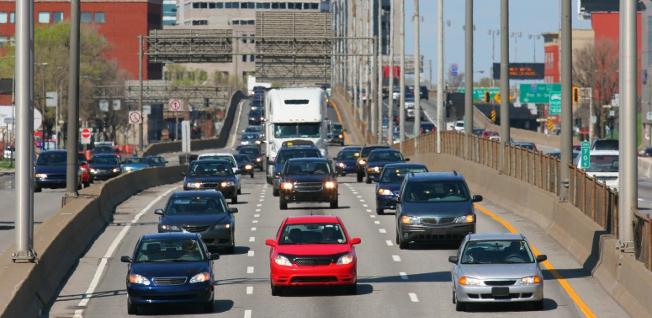Mandatory Entry Level Training for DZ License in Ontario
November 12, 2017Useful Tips for Long Road Trips Body
December 14, 2017Driving Safe in Canada
Driving in Canada may be very different in relation to driving in the USA. In Canada, individuals drive on the right-hand side of the street. Canadian streets are very long and therefore it`s advised to always carry food and water along with you while you`re on a long journey. Mishaps because of weariness and drowsiness are common.
Winter travel can be risky because of heavy snowfalls and unsafe snow conditions. A few streets and bridges are liable to occasional winter closures. Snow tires are required in a few provinces.
-
Speed Limits
Speed limits differ contingent upon where you are driving in Canada. The speed is measured in kilometers every hour (kph), which may be somewhat confusing for somebody who`s not used to the metric framework. Unless generally posted, the most extreme speed confine in Canada is 50km/hr in the city and 80km/hr on highways.. On provincial expressways, the posted speed point of confinement might be 100kph. Speed laws abused can be caught on speed cameras and radar detectors.
It is unlawful to take vehicle radar detectors into Quebec, Ontario, Manitoba, the Yukon or the Northwest Territories, paying little heed to whether they are used or not. Radar detectors, operational or not, will be confiscated and a considerable penalty will be imposed by the Police.

-
Safety belts
Safety belt use is compulsory for all travelers, and child car seats must be utilized by kids under 20 Kg (40 pounds).
-
Street Signs
Signs and symbols are fundamentally the same as those utilized as a part of most nations around the globe, so they show symbols rather than text. In Quebec, the greater part of the signs are in French, so in specific regions knowledge of French can be vital.
-
Drinking and Driving
Drinking and driving is a criminal offense in Canada. Punishments are substantial, and any earlier conviction is grounds for rejection from Canada.
-
Cell Phones
Using cellphones while driving in Canada is against the law and if caught, you will be penalized.
-
Traffic Lights
In Montreal and Quebec City, it is not allowed to take a right on red. At an intersection, directional signs will show just which turn is permitted; any other turn is precluded.
-
School Bus
In Canada, if a school bus stops and flashes red lights, traffic in both directions must consent and stop.
-
Documents
Continuously carry essential documents while driving in Canada like your driver`s permit, vehicle registration, authentication of vehicle insurance and passport. U.S. vehicle insurance is acknowledged as long as an individual is a tourist in Canada. U.S. insurance firms will issue a Canadian insurance card, which ought to be acquired and carried prior to driving into Canada.
On the off chance that you don`t possess the vehicle you are driving, you should convey a letter from the proprietor giving you consent to drive. Foreign driver’s license is substantial and therefore, an International Driving permit isn`t required.
-
The Police
On the off chance that you are halted by the police while driving in Canada, remain seated in your vehicle and turn the engine off. Wait for further instructions by the cop and act accordingly. Try not to do anything yourself. Continuously be pleasant and well mannered. Never attempt to bribe the cops, or pay the fine directly to him. Endeavoring to bribe a cop is an intense wrongdoing in Canada.
-
Headlights
Contingent upon which region you are driving in, you should switch on your headlights even amid the day. Continuously keep dipped headlights on amid low visibility.
-
Animal Crossing
Signs alarming drivers to be careful of certain animals that meander close-by might be seen on a few streets. It`s not simply to ensure the creatures; deer, elk, and moose, it can be a genuine danger to vehicles and their drivers. They regularly get mesmerized by car lights and stand frozen in the way of your vehicle, or can dash over the street out of the blue. On the off chance that you hit one of these substantial creatures, particularly a moose, you can be killed.
Driving Instructors at Sprint Driving School
Our Driving Instructors in Toronto come with Over 25 years of experience and have have up to date knowledge and practice. We make sure to use the latest models of equipment to ensure a smooth transition into your career. We offer Professional Truck /Bus Driver Training courses to meet the skill level requirements of any road transportation industry carrier.
Contact us at:
Phone: 416 222 4190 416 222-6058
Fax: (416) 222-9403
E-mail: [email protected]

